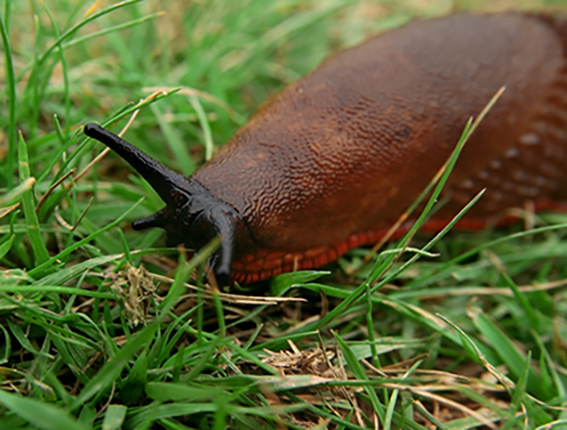- Home
- News, Articles & Reviews
We are hiring! Please click here to join our growing magazine delivery team in Gloucestershire!
Areas
Homes & Gardens
Archive

A time of plenty
All Areas > Homes & Gardens > In the Garden
Author: Daniel Hoggins, Posted: Wednesday, 26th June 2024, 09:00
The garden in July is a time of plenty. Plenty of sunlight in those long summer evenings, plenty of colour in the flowers throughout your borders, and plenty to harvest in your vegetable plot.
Unfortunately, though, there are also plenty of slugs and snails about under cover of night that may well be tucking into the spoils of your hard labour.
Luckily, there are plenty of ways to deal with these little critters other than throwing slug pellets about, which are known to kill birds, hedgehogs and other wildlife. The most natural and therefore the simplest method of slug control is to encourage wildlife that will eat the slugs for you.
Lure the slugs to their slippery demise
Beer traps also work particularly well. A dish filled with beer, sunk into the soil of your vegetable bed, will lure the slugs to their slippery demise without hurting anything else. Placing copper tape or bands around plants will also stop the slugs and snails in their path as they do not like to touch copper.
Another simple method is to lean a damp piece of wood up against or near your vegetable plot. The slugs and snails will seek shelter there during the day and you can then remove them and put them on the compost heap in the evening.
But by far the most effective method for slug control is to use nematodes. These are microscopic worms that feed on particular garden pests and are a completely organic method to keep on top of them. You can buy ten million or so species-specific nematode packs, mix them with water and pour straight onto your garden.
July is the perfect time to prune your soft fruit trees, such as plum, damson and cherry. Not only is silver leaf fungal disease less abundant in drier weather, but it gives these more susceptible trees plenty of time to heal over the cuts before the cold and wet weather comes in. To prune these, you’ll be mostly looking to keep the structure tidy and remove any oppressively crossing branches.
Promote fresh growth and new flowers
Perennials that flowered early in the year such as delphiniums, poppies and geraniums will benefit from being cut back now, too. This will promote fresh growth and new flowers.
Sweet peas require regular picking and any seed pods removed to promote more blooms longer into the summer. Likewise with your roses, the more deadheading you do, the more flowers you’ll get.
Rambling roses that have finished flowering for the year should be given a good trim now, unless they’re allowed to grow up into trees. Pruning rambling roses requires a lot less finesse than all the other types. A good pair of shears or even a hedgecutter can be taken to ramblers with no ill effects whatsoever.Copyright © 2026 The Local Answer Limited.
Unauthorized use and/or duplication of this material without express and written permission from this site's author and/or owner is strictly prohibited. Excerpts and links may be used, provided that full and clear credit is given to The Local Answer Limited and thelocalanswer.co.uk with appropriate and specific direction to the original content.More articles you may be interested in...


© 2026 The Local Answer Limited - Registered in England and Wales - Company No. 06929408
Unit H, Churchill Industrial Estate, Churchill Road, Leckhampton, Cheltenham, GL53 7EG - VAT Registration No. 975613000You are leaving the TLA website...
You are now leaving the TLA website and are going to a website that is not operated by us. The Local Answer are not responsible for the content or availability of linked sites, and cannot accept liability if the linked site has been compromised and contains unsuitable images or other content. If you wish to proceed, please click the "Continue" button below:




